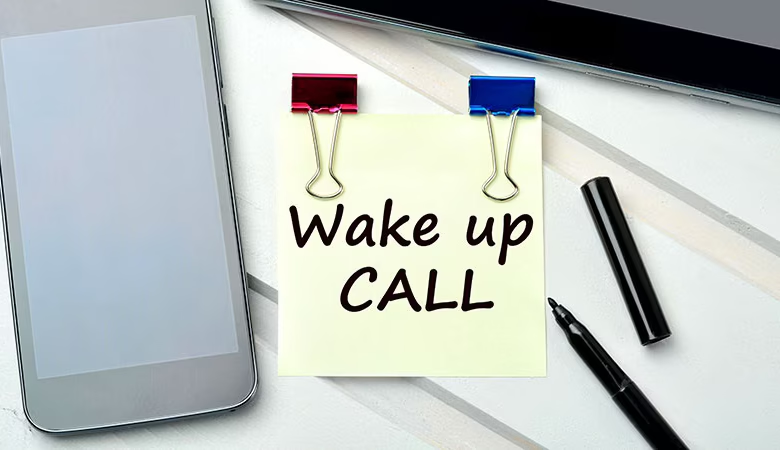Your Financial Wake-Up Call: What You Need to Know About Money Management

Have you ever looked at your bank account and thought, Where did all my money go? You’re not alone. Many of us feel like we’re constantly trying to stay afloat financially, but here’s the thing: money management doesn’t have to be overwhelming. In fact, with a little know-how and some simple changes, you can take control of your finances and set yourself up for a more secure future. Let’s dive into what you really need to know—and do—to manage your money like a pro.
Why Money Management Matters
Let’s start with the basics: why does money management even matter? Well, think about it. Poor money habits can leave you drowning in debt, feeling constantly stressed, and missing out on opportunities like buying a home, traveling, or starting your own business. On the flip side, when you’re in control of your finances, you’re not just paying bills—you’re building the life you want.
Imagine being able to handle an unexpected expense without breaking a sweat or knowing exactly where your money is going every month. That’s the power of good money management. It gives you freedom. It gives you peace of mind. And most importantly, it puts you in the driver’s seat.
Common Financial Pitfalls (and How to Dodge Them)
Let’s face it: we all make mistakes. But some financial missteps can really trip you up. Here are a few common traps and, more importantly, how to avoid them:
Living Paycheck to Paycheck
Sound familiar? One survey found that over 60% of Americans are stuck in this cycle. The key to breaking free is creating a budget (don’t worry, we’ll get to that soon) and finding small ways to save. Start by tracking your expenses for a month—you might be shocked at how much those little $5 purchases add up.
Uncontrolled Debt
Credit card debt can snowball fast. If you’re only making minimum payments, you’re basically treading water while the interest piles up. Instead, focus on paying off the highest-interest debts first (the avalanche method) or tackling smaller balances to build momentum (the snowball method). Either way, have a plan.
Neglecting Credit Health
Your credit score isn’t just a number; it is a snapshot of your financial reputation. It affects many aspects of life, from how one gets loans to the renting of apartments and sometimes even getting certain jobs. What you may not know, however, is how much car insurance is affected by credit score. Many insurers use your credit score as a factor in determining premiums because they look at it as a way to determine how much risk they’re taking on. A poor score will lead to higher rates; therefore, taking steps toward improvement is important. Make on-time bill payments start by keeping credit card balances low, and review your credit report regularly to catch errors. These are small but consistent steps that considerably improve your financial standing and lower your cost of insurance in the long term.
Lack of Savings
No savings? No safety net. Life happens—car repairs, medical bills, surprise expenses. An emergency fund is your best friend in these situations. Don’t think you need to save thousands right away. Even setting aside $10 a week can make a difference.
Building Smart Money Habits
So, how do you actually get better at managing your money? It’s all about building habits that stick. Here’s where to start:
Make a Budget That Works for You
Budgeting isn’t about restrictions; it’s about priorities. Start by listing your income and expenses. Then, divide your spending into categories: essentials (rent, groceries), savings, and fun stuff. The 50/30/20 rule is a good guide: 50% for needs, 30% for wants, and 20% for savings or paying off debt.
Track Your Spending
Ever wonder where your money disappears? Tracking it can be an eye-opener. Use apps like Mint or YNAB (You Need a Budget) to make it easy. You might spot patterns—like how much you spend on takeout—and find ways to cut back without feeling deprived.
Save Smarter, Not Harder
Saving money doesn’t have to be painful. Automate your savings so a portion of your paycheck goes straight into a savings account. Set clear goals, whether it’s an emergency fund, a vacation, or retirement. And remember: every little bit adds up.
Harness the Power of Compound Interest
Here’s a fun fact: if you invest $100 a month starting at age 25, you could have over $200,000 by retirement (assuming a 7% return). The earlier you start saving or investing, the more time your money has to grow. It’s like free money—why not take advantage?
The Emotional Side of Money
Money isn’t just numbers on a spreadsheet. It’s deeply tied to our emotions. Financial stress can feel overwhelming, making it hard to focus on anything else. But here’s the good news: taking small, actionable steps can help you regain control and feel empowered.
Start by shifting your mindset. Instead of thinking, I’m terrible with money, tell yourself, I’m learning to manage my finances. Celebrate small wins—like paying off a credit card or sticking to your budget for a month. Those victories build confidence and momentum.
And remember, you’re not alone. Talking about money can feel taboo, but it’s okay to ask for help. Whether it’s a friend, a family member, or a financial advisor, reaching out can make a huge difference.
Tools and Resources to Help You Succeed
You don’t have to figure it all out on your own. There are tons of resources to help you on your financial journey:
- Budgeting Apps: Tools like Mint, YNAB, and PocketGuard can simplify your budgeting and tracking.
- Books: Check out classics like The Total Money Makeover by Dave Ramsey or I Will Teach You to Be Rich by Ramit Sethi for practical advice.
- Financial Advisors: If your situation feels too complicated, a professional can help you create a plan tailored to your needs.
- Online Resources: Websites like NerdWallet, Investopedia, and even YouTube channels offer free, beginner-friendly tips on money management.
Wrapping It Up
Managing your money might feel daunting, but it doesn’t have to be. Start small. Track your spending for a week, set up an automatic transfer to savings, or create a simple budget. Every step you take brings you closer to financial security and freedom.
So, what’s your first step going to be? Are you going to check your credit score? Start saving for an emergency fund? Maybe cancel a subscription you never use? Whatever it is, don’t wait. Your financial future is in your hands—and the best time to start is right now.



